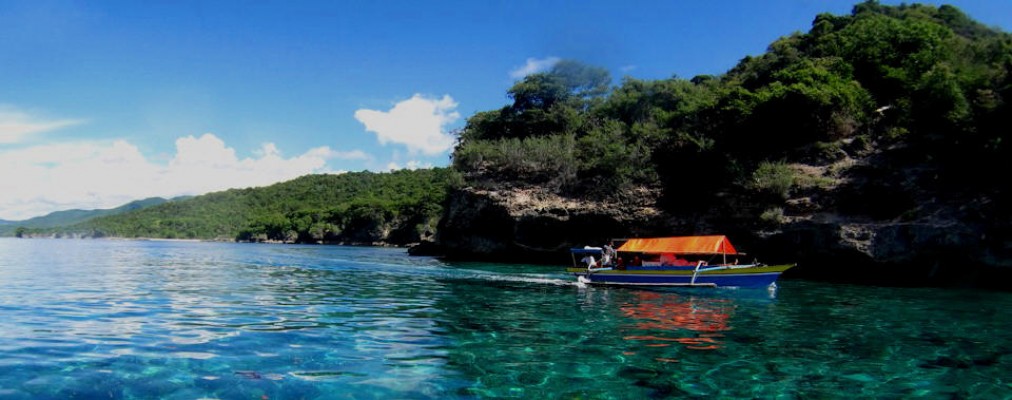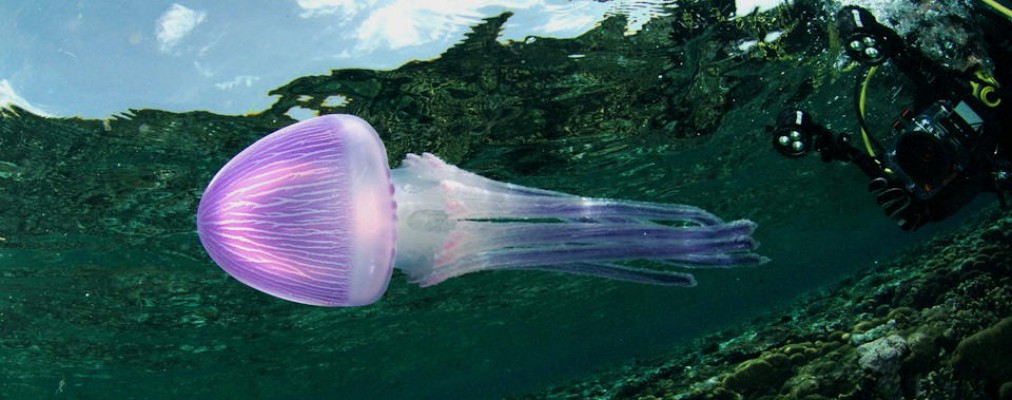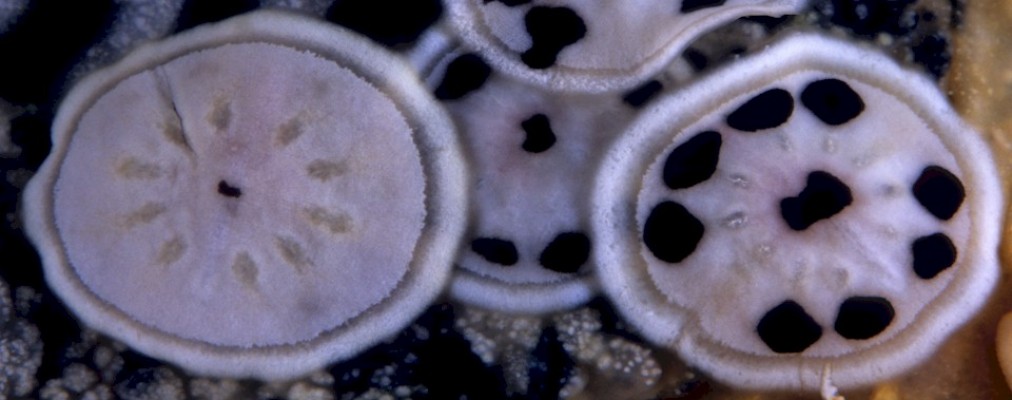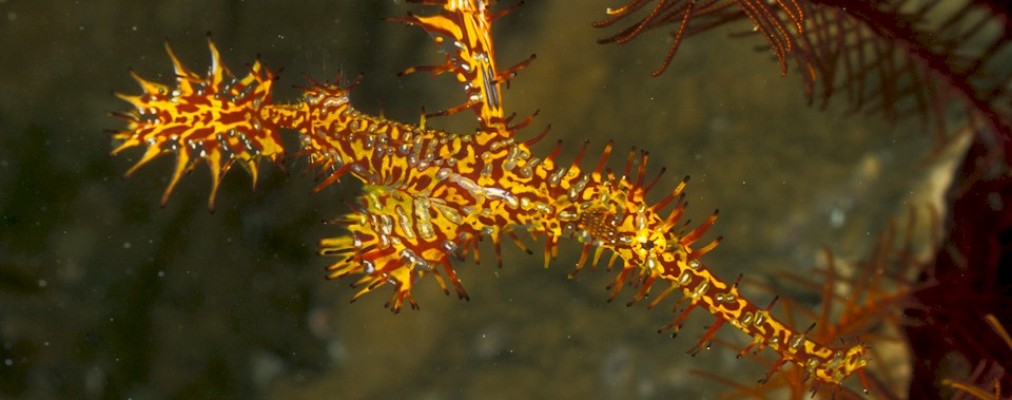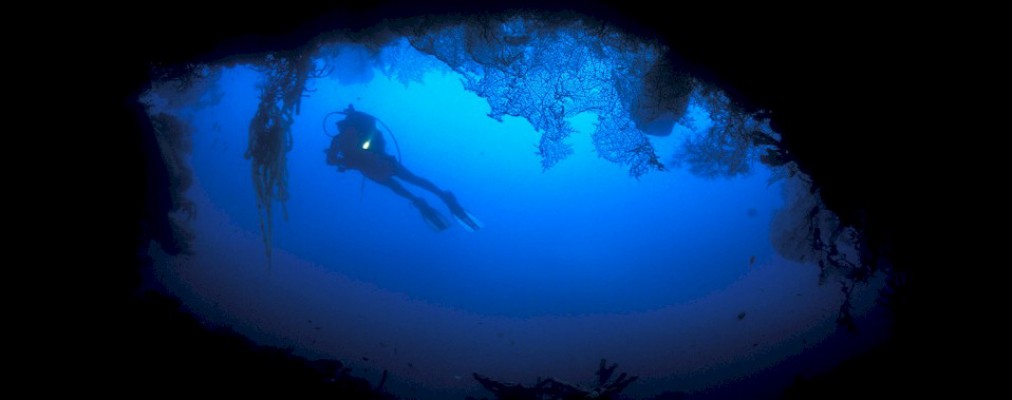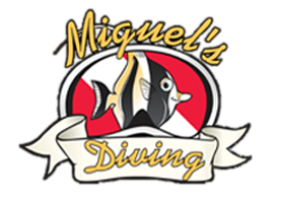Loading content - please wait...
Tips for Drift Diving in Gorontalo

General Drift Diving Tips
When diving in a current, the most important thing is to maintain neutral buoyancy and depth. You want to avoid contact with the coral reef while drift diving. Relax and ride the current. In other words, go with the flow!
To detect a change in current up ahead, look at the fish. Fish will always face into a current. Do you notice the school of Purple Anthias in Digant Desai’s photo? They are all facing into the current. In fact, the stronger the current the more fish will gather along the reef. They are waiting for passing food, such as plankton.
One of the keys for safe drift diving is good surface support. An experienced boat crew is essential. Miguel’s Diving has been operating safely since 2003. At certain sites where currents are expected, the dive boat will wait in blue water off the reef edge, so that spotting the divers is easy.
Accessories for Safe Drift Diving
Sometimes divers bring a dive sausage in areas of strong currents. The tube is inflated by using an alternate air source, like an octopus. The tube is attached to a line that the diver holds while drifting with the current. Since the tube is inflated with air, it bobs along the surface of the water and marks the position of the diver. This helps the surface crew keep track of divers. This is particularly useful in Komodo where currents are strong.
In certain areas in Indonesia, like Raja Ampat, divers bring dive hooks. This is basically a metal hook on a line and attached to your BCD. Divers descend into a strong current, hook into the coral and watch the fish go by.
Miguel’s Diving encourages divers not to use dive sausages or reef hooks here. They are not needed here. Instead, your dive guide will use a dive whistle attached to his inflator hose to signal the boat crew for picking up divers.
Currents in Gorontalo
Gorontalo has long shore currents that run to the right or to the left along the shore. It is not possible to be towed out to sea by a current in Gorontalo. Currents here are also quite gentle. That is why Gorontalo is suitable for newer divers
, as well as serious underwater photographers. Currents here also tend to reverse every 20 to 30 minutes. We have named one dive site “Traffic Circle” because divers often can ride the lower current to several underwater points and then ride the upper current back to the mooring buoy where the dive boat waits.
When diving submerged points in Gorontalo, like at White Point or Buffalo Head Point, the current pushes divers around the point. This is the time to look into the deep water for the schools of fish that pass by. Once around the point, there is no longer a current. Now is a good time to enjoy the coral wall. Sometimes divers encounter reverse currents that are too strong to fin against. In that case, the dive guide will signal everyone to turn around and drift with the new current.
For more tips on diving in Gorontalo, check out our Advice page on our web site. To arrange your dive trip to Gorontalo, please make a booking with us at info@miguelsdiving.com
